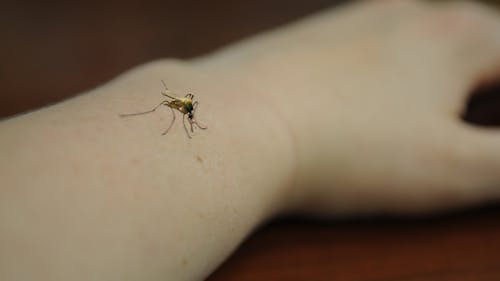Rutgers professors discuss importance of mosquito control

Although the Zika virus has been prevalent in southern and tropical areas, it has not created any harm in New Jersey. As summer time rolls around however, Zika may be slightly more common in New Jersey than before.
The Zika virus is most commonly transmitted through the Aedes aegypti, the yellow fever mosquito, which is a tropical mosquito, said George Hamilton, the chair of the Department of Entomology at Rutgers.
Northern states such as New Jersey do not have this species of mosquitos due to cold winters. For this reason Zika is less of a threat here, he said.
But southern states including Georgia, Texas and Florida have the potential to host the mosquito, Hamilton said. There have been observed populations of the species in Florida, which is why it has become a concern for them.
In previous years few populations of the yellow fever mosquito have been observed in New Jersey during the summer time, said Dina Fonseca, a professor in the Department of Entomology who specializes in mosquitos.
New Jersey has another species that could act as a vector for the disease. Aedes albopictus, the Asian Tiger mosquito, can transmit the Zika virus, which is the main concern, Hamilton said.
If someone who has been infected with the virus in a tropical area comes back to New Jersey and is bitten by the Asian Tiger mosquito, the mosquito can pick up the virus, he said. If it picks up a sufficient quantity, the mosquito will then be able to start local transmission.
“There is no Zika virus in NJ except from people that traveled to somewhere in the world where Zika is actually occurring. There’s only been eight cases so far of people that have been found infected by travelling and are now in New Jersey," Fonseca said.
In fact, the scenario professor Hamilton described has occurred before with the same mosquito species in Italy.
In 2007, someone infected with Chikungunya in India travelled to northern Italy, where there had previously been no transmission of the disease, Fonseca said. The man infected local populations of mosquitos, which then initiated transmission in Italy, ultimately causing an epidemic of around 300 people infected in the country she said.
But both professors agree that New Jersey is taking actions towards mosquito control.
“Every county just about has some kind of organized mosquito control that residents can call and complain about getting bit by a lot of mosquitos,” Hamilton said.
The mosquito control centers will send people over to analyze and treat the situation by trying to reduce the mosquitos.
The U.S. has organized mosquito control because there is a serious problem with mosquitos that dates back to the 1700s, 1800s and early 1900s, Hamilton said.
“It was so bad that John B. Smith (a professor of Entomology at Rutgers in the late 1800’s) managed to get a law passed in the NJ legislature that mandates mosquito control by the counties," he said.
New Jersey residents take take their own preventative measures to decrease the risk of Zika transmission. The best measure is getting rid of still water.
Typically, mosquitos need about seven days in standing water to develop from eggs to the adult stage where they can bite people, Hamilton said. The goal is for people to prevent having standing water in their yards.
“Refilling bird baths less than a week apart, cleaning out your gutters. Even kids toys if they’re outdoors and it's going to rain, turn them over so they can’t collect water. It can go a long way towards helping, because we’re going to have to target the Asian tiger mosquito and that’s one of the ways to do it.” He said.
With the Chikungunya virus, everyone exposed developed the disease, so the epidemic in Italy grew to about 300 cases. With Zika virus, only about 20 percent of people develop symptoms, so there will be fewer cases, she said.
“The only scary thing with Zika is that it can affect an unborn fetus. That’s why this is a different story all together,” Fonseca said. “When we were looking at 100 to 300 people with joint pains that goes away in a few days, it’s one thing. When you’re looking at the possibility of even one kid being born with microcephaly because of Zika, that’s for life.”
Madhuri Bhupathiraju is a School of Arts and Sciences first-year student majoring in cell biology and neuroscience. She is a correspondent for The Daily Targum. Follow her on Twitter @madhuri448 for more.



